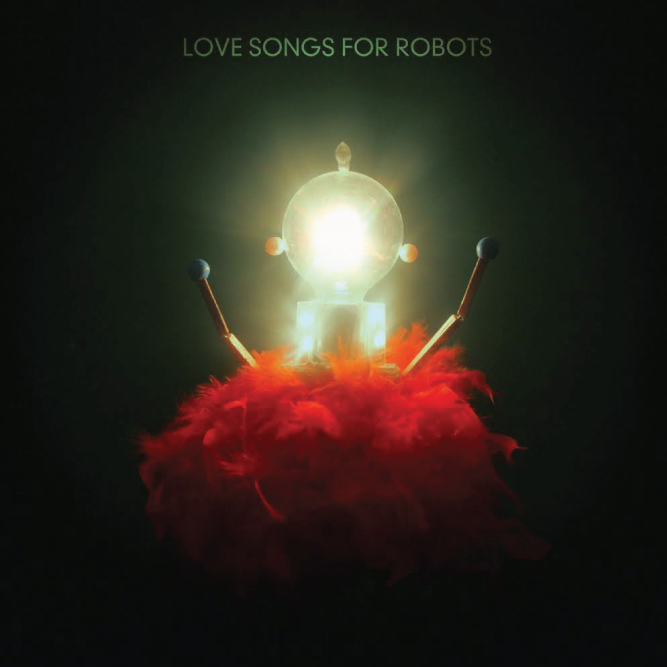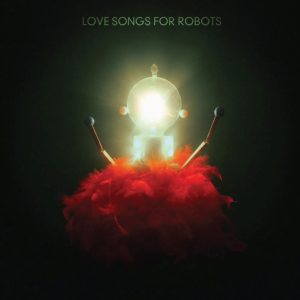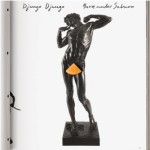In an interview from 2012 before the release of their last album Adventures In Your Backyard, frontman Patrick Watson spoke of the arrangement vs. song-writing complex: “People tend to be more interested in the arrangements and instruments than the song themselves, which told me we were on the wrong track.” This response was a product of dramatic, adventurous and unpredictable sonic magic that provoked escapism- which was unsurprisingly cinematic due to his soundtrack background- but also the fact that the thickening and compelling layers dominated and the whispery breeze of Watson’s effect-heavy halcyon falsetto was beautiful but incomprehensible therefore any meaningful intellect of the intelligent thinker became lost in the attentive compositions. All this is fine if you prefer to welcome his anti-pop dismissing of a standard chorus-verse-structure but Watson felt frustrated by the misinterpretations. Yet on the Mariachi-filled Adventures in Your Backyard seemed to rectify this deciphering problem to an extend with Watson’s voice being placed more in the forefront of more stripped back folk: ‘Into Giants’, ‘Words In The Fire’, ‘Noisy Sunday’, ‘Adventures In Your Backyard’, which helped listeners understand his concept of homesickness, gratitude, living life to the fullest, seeing the little optimistic things through a child’s eyes and realisations of the luxuries that are in your vicinity. Not only was he a storyteller of bedtime fairy-tale proportions (‘Strange Crooked Row’) but a counsellor too.
Reading that the band’s fifth album Love Song For Robots centred around the theme of curiosity and how it’s the only attribute of humans that separate us from the systematic nature of robots hyped up the anticipation that more wise words would enter our ears. With the exception of the underwhelming ‘Alone In This World’ and brief moments on the early Mumford-and-Sons-esque ‘Hearts’ and ‘Know That You Know’, Watson’s voice has resorted back into it’s introspective shell, which is frustrating considering how ambitious the insight was. It as if their albums have a zig-zagged purpose with the second and fourth album being the most intelligible, making it seem likely that the next even number will follow the pattern. This hindrance leads us helplessly back into the focus of the compositions but in Watson’s case, it’s always a rewarding consequence.
Being sucked inside an Wizard-Of-Oz-hurricane with an assemblage of spooky metallic paraphernalia belonging to the most left-field circuses floating past aimlessly and being accompanied by creepy characters that were occasionally as sinister as the Wicked Witch of the West, was what it was like listening to the earliest of Patrick Watson’s band material. Music boxes, glockenspiel, discordant freak-jazz-saxophone, train noise, Hanne Hukkelberg-like found objects (Wooden Arms) and nightmarish piano mixed with schizophrenic wailing guitar distortion created this mood. Although many of Watson’s characteristics have stuck by him throughout the journey: his non-lexical habits, his soft piano, acoustic guitar, intense strings and climaxes, vibratos and building of imaginative idealist landscapes, things on Love Songs For Robots focus on being more blissful, measured, detailed and sensitive and expresses emotion in a far more calm Renaissance manner.
The opening title track immediately guides you into this heavenly world of sunrise aesthetics and it remains tranquil even when his voice rises in enthusiasm with its understated bubbled melodic blues guitar, patient acoustic plucks and euphoric synths. The gentle western Americana atmosphere that gave him associations with Ennio Morricone on Adventures In The Backyard remain here in their most dreamy nocturnal form on the aforementioned song, along with ‘Good Morning Mr Wolf ‘, ‘Hearts’ and ‘Know That You Know’. The same emotive goose bumps is felt in the melancholic ‘In Circles’, which despite being disappointingly short is a nice engagement in Icelandic-like post rock (Sigur Rós, Múm, Amiina) as opposed to the previous cowboy environment. The post-rock piano and tempo can be heard on ‘Places You Will Go’, which also adds moments of rough electric guitar slides and a voice that’s becoming more like Jonsi in it’s highest pitch and Win Butler mixed with James Mercer (Broken Bells, The Shins) in its lowest form but also developing a character of it’s own.
‘Bollywood’ is a typical example of his ability to surprise. It’s a mix of two contrasting genres, neither of which are Mumbai-based: Science-fiction and Western and it could be theme tune to the bulb-face character on the inspiring album sleeve. It’s melting pot bass and Pink-Floyd-esque jamming bridge (also hear ‘Grace’ for the psychedelic-progressive moments) escort the electronic frenzy- a genre which Watson has only hinted at in the past on ‘Daydreamer’. Although the second half of the album drifts away from it’s entertaining introduction (which is unusual for a Watson album), it preserves it’s gracefulness’ with backing harmonies and soulful change in his voice into Michael Kiwanuka and Benjamin Clementine territory.
With all this in mind and the capable tools to piece together your own surroundings, who needs lyrics anyway?
[Rating: 4]
You can see Patrick Watson perform at Bush Hall in London on May 11th, one day before the album’s release.





